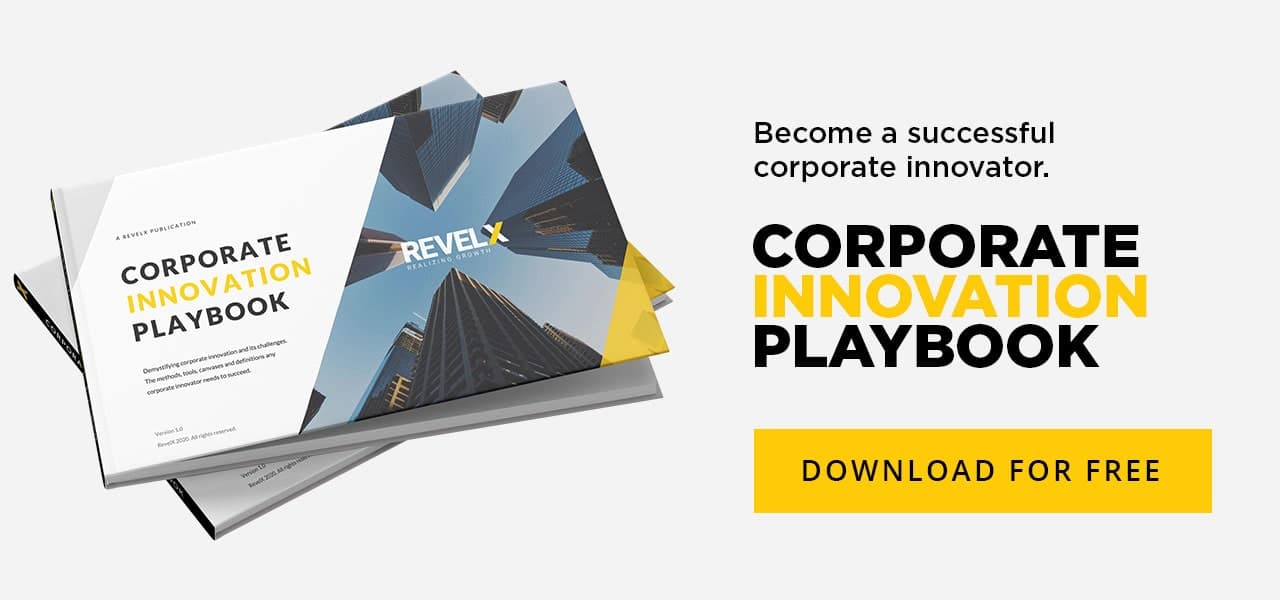In one of my CEO blogs, I came across the phenomena of corporate venturing and or corporate incubators. Some examples in the food and agriculture sector were mentioned in my blog about the ecosystem. Let’s have a closer look and see what it’s all about.
What is corporate venturing?
Corporate venturing comes in many different shapes and sizes. Corporate Venturing is an innovation process in which an established company enters into a structural partnership with and/or participates in an innovative startup. Traditional venturing is off course mergers & acquisitions (M&A) and strategic partnering, but more recent activities are corporate venture capital (CVC), Incubators, Accelerators, and Hackathons.
Corporate Venturing differs from private venture capital in that it also pursues strategic objectives in addition to financial ones. Corporate Venturing is primarily done to increase, directly or indirectly, the sales and profits of the incumbent’s operations. The company seeks to create synergies between itself and the start-up to foster additional growth within the parent company. Corporate venturing is a way to achieve the company’s innovative strategic objectives.
The corporate incubator
One of the different shapes and sizes of venturing is the corporate incubator. Defined as an activity of a company that supports startups from concept to (even) adolescence. Corporate Incubators are often a special brand of the company, bringing in knowledge and expertise, business mentors, specific assets of the company and funding. Ventures can be from outside but also from inside of the parent company. Incubators are catalysts for innovative growth and create a pipeline of new ventures. They particularly take in the more daring business model and disruptive ventures that might otherwise be scrapped in favor of more incremental stuff.
The difference with an accelerator?
To be honest I am not much in favor of discussions around definitions and elaborative wordsmithing of innovation lingo. But often people ask this question. Let’s give it a try. Incubators have a much longer time span. Sometimes ranging from 1 -5 years. They are committed to a larger part of the innovation life cycle of (disruptive) ideas, creating sustainable new businesses. The accelerator nowadays is focused on a shorter period (3-6 months), helping startups into the next growth phase. The accelerator program is often highly focused around a theme and highly structured. Accelerators are often ‘owned’ by many other corporates, whereas incubators thrive best with single parents.
The why of corporate venturing
The ultimate goal is to innovate and build a competitive advantage. This can be done, for example, by acquiring innovation and/or patented technology or knowledge, or by gaining access to a network of customers and/or suppliers. It helps to find and tap into new markets and business areas and in the process stimulates the innovative culture of the company. Corporate venturing is helpful for a company if it feels it is lacking behind in the adaption of rapidly changing technology, business models and other disruptive forces in the market. The advantage for the start-up is that it can rely on and leverage the company’s experience and assets and hence accelerate its development.
Some examples
So far for the theory. Let’s have a closer look at some examples. There are many corporates that have setup some great venturing programs like Salesforce Ventures, Samsung’s C-Lab, Rabo Frontier Ventures or Vinci’s Leonard. In my CEO blog I mentioned two agri/food examples of Nutreco and Unilever.
Nutreco NuFrontiers
Nutreco NuFrontiers is Nutreco’s strategic open innovation and investment team. It sits next to its in-house R&D department and is focused on the mission of ‘Feeding the Future’. They invest both in start-ups developing new technologies that are strategically relevant to Nutreco and its divisions Trouw Nutrition and Skretting, and joint-ventures and partnerships to create ‘moonshot projects’ that address major bottlenecks in the value chain.
NuFrontiers is more than a venture capital or investment fund. They are an active developer of tomorrow’s new feed and food businesses, supporting and providing them with industry-leading expertise and resources. Nutreco’s expertise has been carefully built up over the years in animal nutrition, farming, sustainability, and animal welfare and health. Their corporate venturing is focused on animal nutrition across both livestock and aquaculture farming, animal health, digital solutions, sustainable farming systems, and alternative proteins for food.
One of their most promising and eye-catching ventures is the company called Mosa Meat. A cultivated beef producer that was originally an idea of two guys that met during a government-funded program focused on cultivated meat in 2006. Fast forward to 2021, Mosa can create 80,000 burgers from just one sesame seed sample of cells from a cow. Mosa Meat is a food technology company focused on the future to create the world’s kindest beef burger. Together with Nutreco, one of their other shareholders is the famous actor/producer and activist Leonardo DiCaprio 😉
Unilever’s The Foundry
Unilever launched its own innovation system called The Foundry in 2014. The Foundry is Unilever’s global collaborative innovation platform. It is focused on high-growth Scaleups and pioneering Startups to identify and accelerate partnership opportunities on a global scale. The Foundry sits next to and or is supportive to other initiatives like Level3, the open innovation coworking and events space in Singapore and the Dogpatch Labs in Ireland. Startups are invited to submit ideas across enterprise tech, social & sustainability, marketing & ecommerce, and the very products & ingredients that could evolve Unilever’s product portfolio. Projects include for instance, inviting customers to personalize their own jars of Marmite via their Facebook page and using AI chats to help them create more meals using Knorr products. Since its launch, The Foundry has profiled 40,000+ startups, run 400+ pilots with $50M of investments. A longer-term priority is to ensure that open innovation is integrated in Unilever’s internal working culture. The company also has created co-working spaces to physically bring the startups together with its employees.
It appears that most partnerships to date are marketing-driven with a goal to form deeper connections between Unilever brands and their customers. You could argue that it is still much in the incremental innovative hemisphere. True future focused innovation should come from more business model oriented and disruptive sources. But also, CSR plays an important role. Take for example Unilever’s Sunlight laundry soap that partnered with Altered in developing economies to enable families to conserve up to 98% of water usage. Prioritizing these efforts will be key to making sure The Foundry does not get siloed as a source of gimmicky marketing campaigns or innovation theater.
Take out
Is the Foundry or any other corporate venturing program or incubator really the answer? It begs further questioning. Can external sources truly drive corporates own business transformation, or should this be more fostered from within? How can Unilever or any other incumbent act like a start-up without compromising the consistency and quality that has brought its long-term success? Incubators are great, but often fail to make the proper connection with experimentation to the primary processes and assets and the culture of the company. Luckily for us at RevelX, a good corporate venturing program is no piece of cake. Enough challenges for us to cut the mustard.
Eric de Groot is partner and founder of RevelX. He is also the author of a blog series of CEO interviews on innovation. Want to reach out? Contact Eric at: eric@revelx.nl.
Eric de Groot
Boardroom strategist with unparalleled creative brainpower. Always focused on growth. Creates speed by combining business modeling with inventive pragmatic solutions. Invests in involvement over a sustained period.
Related posts
Step 1. Why every CEO should play the DisruptR game with their team
DisruptR Game for CEOs fosters strategic innovation. Learn…
June 22, 2025
Innovation governance: Why every CEO needs a Growth Board
Growth Board for CEOs is essential. Discover how this…
June 19, 2025
Why innovation belongs on the CEO agenda
Innovation on the CEO agenda is essential. Explore why…
June 16, 2025




